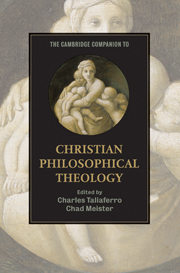3 - Simplicity
from Part I - God
Published online by Cambridge University Press: 28 May 2010
Summary
That God is entirely simple is a teaching that has been reiterated by generations of Christians. It is found in the writings of Augustine of Hippo, Anselm of Canterbury, and Thomas Aquinas. It was formally ratified by the Fourth Lateran Council and the First Vatican Council. No historian of Christianity can plausibly deny that it has featured significantly in Christian discourse. Yet, recently, some Christian (and some non- Christian) analytic philosophers who have turned to the claim that God is simple have rejected it. Are they right to do so? I shall shortly suggest that they are not. To start with, however, I need to explain what the doctrine of divine simplicity amounts to, and I shall do so by focusing on the way it is presented in the work of its most systematic defender - Thomas Aquinas. / Aquinas on simplicity / (a) Preliminaries / When it comes to divine simplicity, thinks Aquinas, everything hinges on the notion of God as Creator. What should we mean by saying that there is a God who creates? Some would reply that we should only take ourselves to be saying that something or other got the universe started.
- Type
- Chapter
- Information
- Publisher: Cambridge University PressPrint publication year: 2009
- 3
- Cited by

